#苍鹭
Photo
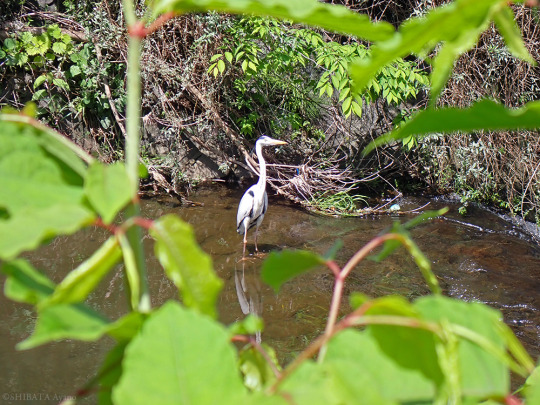
アオサギ
#アオサギ#Ardea cinerea#grey heron#czapla siwa#蒼鷺#苍鹭#野鳥#野鳥観察#川#japan#birds#birdwatching#ptaki#river#rzeka
2 notes
·
View notes
Photo
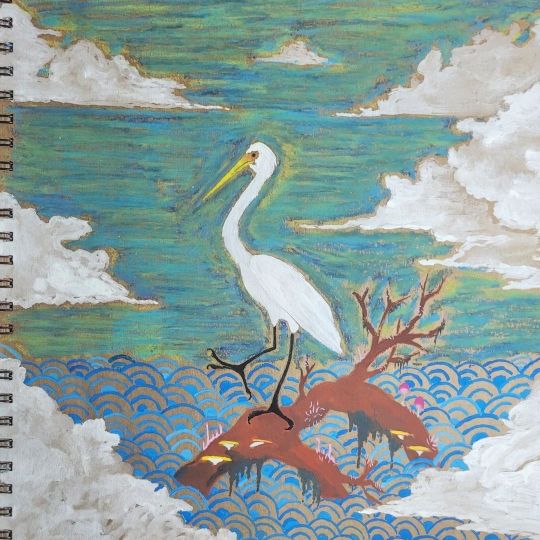
Chegando uma Garçinha para vocês. . . . #draw #drawing #drawart #skecth #skecthbook #ilustracion #ilustration #ilustração #naturebrazil #natureportrait #portrait #portraitart #heron #苍鹭 #garza https://www.instagram.com/p/CpjB7MWrGhz/?igshid=NGJjMDIxMWI=
#draw#drawing#drawart#skecth#skecthbook#ilustracion#ilustration#ilustração#naturebrazil#natureportrait#portrait#portraitart#heron#苍鹭#garza
1 note
·
View note
Text
a guide to people’s names, titles, and other forms of address in cang lan jue/love between fairy and devil
so for chinese media, i like knowing how to read and pronounce the characters’ names, but when trying to look up the names of the clj/lbfad people, i found the info i wanted rather hard to find. i wanted to know what characters made up their names! how to pronounce them! what their different titles and nicknames meant and what kind of people address them by those names! so i decided to try compiling this info myself, on a whim. it’s taken a HOT minute, and a Lot of scrubbing through the episodes, and it will probably need to be updated and edited as i go about rewatching the show (and improving my chinese :’) aha) but here’s what i got for now! feel free to message me if you have suggestions, edits, corrections, or requests :) hopefully some people find this helpful or interesting – i know some of the things i’ve included here are lost in translation in netflix’s english subtitles.
disclaimer of sorts: for definitions, i used MDBG (mdbg.net) and the Pleco app. also, i’m a native english speaker who’s been learning chinese for a handful of years; my chinese is so-so and i tend to miss things like Connotations™. i’ve watched the show 1.5 times and read 1 page of the book. i did my best :P again, open to suggestions! please be sure to check this source post for the most updated version, as i imagine i’ll be making edits now and again.
this is in no particular order. for each person, i put their official/most commonly used name at the top, then in bullets beneath that i’ve listed definitions for the individual characters in their name, along with any other titles or nicknames that they have been called in the show. any somewhat extraneous information is in italics.
苍兰诀 Cāng Lán Jué
the title of the show and the original novel; 苍 (cāng) refers to Dongfang Qingcang, 兰 (lán) refers to Xiao Lanhua, and 诀 (jué) means “farewell.” i’ve seen some people translate this as the Parting of the Fairy and Devil. (i discovered this halfway through watching the show and it made me SO nervous for how the show would end)
九鹭非香 (Jiǔ Lù Fēi Xiāng) is the author’s name/pseudonym.
东方青苍 Dōngfāng Qīngcāng
character breakdown: 东方 (dōngfāng) = east, eastern. 青 (qīng) = green, sometimes blue or black (or blue-green), young/youth. 苍 (cāng) = dark blue, deep green, ash-gray.
my hypothesized derivation of his name: while i was researching the Black Tortoise (玄武 Xuánwǔ) for this post, I Discovered Something Rather Important. there are four mythological creatures that symbolize the chinese constellations and four cardinal directions. besides the Black Tortoise, there are the White Tiger (白虎 Báihǔ), Vermillion Bird (朱雀 Zhūquè), and the Azure Dragon (青龙 Qīnglóng). the Azure Dragon represents the east. so get this: its epithet is the Azure Dragon of the East. in chinese it is called 东方青龙 (Dōngfāng Qīnglóng) or 东方苍龙 (Dōngfāng Cānglóng). SOUND FAMILIAR?? ISN’T THAT COOL?? i just think that is so cool. yes, the characters are the same as in Dongfang Qingcang’s name. associated with the Azure Dragon are: East (direction), Spring (season), Dawn (time of day), Blue/green (color), and Wood (chinese element). my mind imploded when i discovered this, have a good day.
大魔头 dà mótóu: (used in the book, changed to “da mutou” in the show for reasons? some folks mentioned they might have been censoring “mo”) lit. translates to big devil head/boss/chief, big demon boss
大木头 dà mùtóu: (phonetically similar to da motou, changed to this in the show for Reasons™) lit. big wooden head, big wooden chief/boss, or big log. it can also be translated as big blockhead, as per the netflix engsubs, but it’s not my personal preference — the connotations and intent between “da mutou” and “Big Blockhead” feel very different to me. (i.e., if you’re writing dialogue in a fic, i would recommend Da Mutou over Big Blockhead.) Xiao Lanhua calls him this, saying that it sounds a bit less serious than other, more formal forms of address for him.
东方强 Dōngfāng Qiáng, 大强 Dà Qiáng: the name and familiar nickname Xiao Lanhua calls him in the early days before she knew his identity, after she misheard him saying his actual name; 大 (dà) = big, 强 (qiáng) = strong, powerful
本座 běnzuò: a term used to refer to oneself, like “i/me,” but specifically if that person is very high-ranking; your average person wouldn’t use this word. (the usual word for i/me is 我 wǒ. near the end of the show Dongfang Qingcang transitions to using 我 wǒ with Xiao Lanhua — it’s a notable switch that gets lost in translation! similarly, he also makes the switch during his heated tirade at his father in ep. 18, and switches back to his usual 本座 (běnzuò) after he momentarily collects himself. i could be wrong, but i think he drops the 本座 (běnzuò) when less formality or authority is required or desired, like when Things Get Personal, or when he’s stepping out of his role as Moon Supreme, so to speak.)
尊上 zūnshàng: “my lord,” by far the most common term used to address and refer to Dongfang Qingcang by a majority of characters who aren’t his enemy. also part of the phrase often used to formally greet Dongfang Qingcang, “拜见尊上!” (bàijiàn zūnshàng) “Greetings, my lord!”
月尊 yuèzūn: Moon Supreme, used to refer to Dongfang Qingcang or this position (as in the throne, the seat of the Moon Supreme, the name of this Job) respectfully
月尊大人 yuèzūn dàren: Moon Supreme Lord (netflix); 大人 (dàren) is a title of respect towards one’s superior. this title is often used to address Dongfang Qingcang directly. Xiao Lanhua uses it regularly when she is being kept in the Moon Palace, both in private conversation and in serious public settings. (as the show goes on, she switches to 大木头 (dà mùtóu) in their more private, casual conversations but maintains 月尊大人 (yuèzūn dàren) in situations that warrant greater respect and formality.)
魔尊 mózūn: devil king, demon king; used in the book to address him at times (by Lady Chidi for instance, who in the show calls him 月尊 (yuèzūn), Moon Supreme; were they trying to avoid the word 魔 mó in the show or something, i don’t know)
儿子 érzi, 孩子 háizi: “son/my son” and “child/my child,” respectively. used briefly by Dongfang Qingcang’s father to address his son directly. the other times, he calls him Qingcang.
兄尊 xiōngzūn: a specific form of “brother”; the word that Xunfeng uses to address and refer to Dongfang Qingcang. 兄 (xiōng) = older brother (i.e., only a younger sibling would use this term), 尊 (zūn) = a respectful honorific often appended to these titles, usually signifying high, venerated status. 尊 (zūn) comes up a lot :)
for those who are curious about the reverse: Dongfang Qingcang usually addresses Xunfeng by name. when Dongfang Qingcang refers to Xunfeng with a familial term in ep. 2, he says “我那弟弟,” my younger brother (possibly translated as “that younger brother of mine”). for “younger brother” he uses 弟弟 dìdi, there’s no 尊 (zūn) or other honorific — probably because his younger brother is lower than him in status, so there is no need for an honorific. (it’s also interesting to see that he dropped the 本座 (běnzuò) for this line and used 我 (wǒ), but i’m not sure yet if this implies anything, if it might be a mistake, or if it just sounds more natural. in ep. 10, Dongfang Qingcang calls Xunfeng “本座的同胞弟弟,” “my younger brother (borne of the same parents),” where he does use běnzuò to refer to himself, but this line is a bit sarcastic in tone.)
both Dongfang Qingcang and Xunfeng refer to and address their father with 父尊 fùzūn, which is father + honorific, similar to 兄尊 (xiōngzūn). others usually call their father the previous/former/old Moon Supreme, 老月尊 lǎo yuèzūn. (extra note: Dongfang Qingcang doesn’t use 父尊 (fūzūn) in every case where he is referring to his father — on a rare few occasions he uses the more generic term 父亲 (fùqīn) — but based on my Research and consulting a few people with better chinese than me, this may be because of the way the word “father” is used in the sentence. more of a grammar/syntax thing than something significant to the plot or his character.)
a neat thing that happened in ep. 21, around timestamp 38:15: Dongfang Qingcang accidentally uses 父尊 (fùzūn) when talking about his father to Xiao Run in the mortal realm, which might have implied to Xiao Run that his father is of very high, emperor-like status (very sus, for an undercover agent); however, he catches himself, and switches to 父亲 fùqīn, which is the more common term for “father.” in the engsubs it just looks like he’s stuttering over the word “father.” 父亲 (fùqīn) is also used in modern day to refer to one’s father, but it’s a bit formal and usually used in conversation with other people or in writing; you wouldn’t use this term to address your dad directly, that’s 爸爸 bàba. in case any modern AU fic writers were wondering ¯\_(ツ)_/¯
少尊 shàozūn: Young Lord. used to address Dongfang Qingcang when he was a boy, when his father was still the Moon Supreme.
属下 shǔxià: subordinate. used to refer to himself (in 3rd person) when speaking to Xiyun, when he was acting as her servant after her rebirth. (this term is also used by Shangque with Dongfang Qingcang.)
小仙 xiǎoxiān: lit. little immortal, perhaps translated as low/lower immortal. this isn’t so much a title as a description of his position, when he is pretending to be from Shuiyuntian in front of Xiyun. this scene helped me understand how the word 仙 (xiān) works, actually. Dongfang Qingcang called himself a 小仙 (xiǎoxiān) of Shuiyuntian, to which Xiyun later said, “你身上没有仙气。根本不是仙族。” netflix engsubs wrote, “You have no immortal aura on you. You are not immortal.” and then i thought to myself, but he is immortal though, isn’t he? but 仙 (xiān), meaning “immortal” or “celestial being,” refers more to the race of people in Shuiyuntian rather than the state of immortality. immortal the noun, not immortal the adjective. Xiyun isn’t saying, “you are not an undying entity,” (because he is); what she really means is, “you are not of the fairy realm/tribe.” 仙族 (xiānzú), the term she uses in this sentence, means fairy tribe or immortal realm, referring to Shuiyuntian.
东方员外 Dōngfāng yuánwài: translated as “Mr. Dongfang” by netflix. this is the mortal title Jieli assigned to him, and how he is usually addressed during the mortal realm arc. 员外 (yuáiwài) is an old word meaning “counselor” or “landlord.” Jieli intended for him to be a wealthy businessman. when he is just addressed as 员外 (yuánwài), it is translated to “sir.”
东方兄 Dōngfāng-xiōng: 兄 (xiōng) refers to one’s older brother; this is a familiar term Xiao Run uses to address Dongfang Qingcang when they become Bros™
内兄 (nèixiōng): brother-in-law, wife’s elder brother. Xiao Run calls Dongfang Qingcang this, after Jieli announces that Xiao Lanhua is Dongfang Qingcang’s sister.
郎君 lángjūn: translated by netflix as “young man” and “sir.” it is also an archaic form of addressing one’s husband, and could refer to the playboy of a rich family. however, i think in this show it is a respectful form of address, possibly directed at the head of a household unit (Xiao Run’s father and occasionally Xiao Run himself are referred to with the same term). i’m unsure though.
小兰花 Xiǎo Lánhuā (Orchid)
character breakdown: 小 (xiǎo) = little/small, but commonly used in front of names and nicknames for ... reasons i am too lazy to explain here, but other people have definitely written about it if you’d like to look it up. 兰花 (lánhuā) = orchid.
小花妖 Xiǎo Huāyāo: lit. little flower demon, little flower monster; the name that Dongfang Qingcang initially calls Xiao Lanhua, when he still doesn’t like her. netflix subs say “little flower spirit,” but to me this phrase loses a bit of the evil/demon/monster connotation — i feel like Xiao Huayao is not meant to be particularly respectful or polite :’) interestingly, i noticed in ep. 10 that Shangque calls her 小花妖 (Xiǎo Huāyāo) to her face, perhaps because she was annoying him, but he calls her Xiao Lanhua (Orchid) in his private conversation with Dongfang Qingcang shortly after. forms of address really have so many potential implications…
兰花仙子 Lánhuā xiānzi: Fairy Orchid; she is sometimes addressed as just 仙子 (xiānzi), “fairy,” including in situations where her name is not known by the speaker
仙族女人 Xiānzú nǚrén: Fairy Tribe woman (used by some Moon Tribe people to address her in third person, not when speaking to her directly)
月主 yuèzhǔ: translated as Moon Queen; zhǔ on its own means host, owner, or master. this is how people of the Moon Tribe address Xiao Lanhua after she undergoes her trip to Non-Abidance Cave to marry Dongfang Qingcang.
息芸 Xīyún: her name as the goddess. 息 (xī) = breath, or to cease/stop/rest; 芸 (yún) mainly refers to the plant Ruta graveolens, the common rue, as far as i can tell
息山神女 Xīshān shénnǚ: Goddess of Xishan; 山 (shān) = mountain
息兰(族的)神女 Xīlán (zú de) shénnǚ: Xilan Goddess (without parentheses) or Goddess of the Xilan Tribe (with parentheses, used by Xiao Lanhua at one point to refer to herself). Goddess of Xishan is the more common title, compared to Xilan Goddess, but both have been used.
breakdown of previous: 息兰 (xīlán) = the name of the tribe, containing the words for “breath” and “orchid”; 族 (zú) = the word for tribe, clan, race, nationality, ethnicity, etc.; 的 (de) is a possessive particle; 神女 (shénnǚ) = goddess (lit. god-woman; it’s also slang for “prostitute” but that doesn’t come up in this show)
故人 gùrén: old friend (literary); how the Xuanwu god addresses Xiao Lanhua/Xiyun. (this word is also used to refer to the deceased/departed, but not in this context.)
when referring to Xiao Lanhua’s plant form, people in the show use (小) 兰花草, (xiǎo) lánhuā cǎo. 草 (cǎo) = grass. it means (little) orchid plant. not every mention includes the “little.”
her familial relationship to Xunfeng: in ep. 28 Dongfang Qingcang says, “If you still regard me as your brother, then she is your sister-in-law.” 她就是你的阿嫂。阿嫂 (ā-sǎo) is an archaic term for sister-in-law, specifically for one’s older brother’s wife. if Dongfang Qingcang and Xiao Lanhua were married, Xunfeng might call her this, but this never happens in the show. Xie Wanqing, similarly, also refers to Xiao Lanhua as her future 阿嫂 (ā-sǎo). in a modern AU, Xunfeng would call his sister-in-law either 嫂子 (sǎozi) or 大嫂 (dàsǎo). my mom is a native speaker and says the latter is more likely. it refers to the oldest brother’s wife, the “big” sister-in-law, even if she is younger than the speaker.
on that note, the word for “wife” is 妻子 (qīzi), and it’s sometimes used in the show when referring to Xiao Lanhua per her relationship to Dongfang Qingcang. Dongfang Qingcang himself often uses 月主 (yuèzhǔ), Moon Queen, in lieu of “wife.” a couple exceptions: when he’s pretending Xiao Lanhua is his wife to trick Xiao Run, the word he uses for “wife” is 内子 (nèizǐ). when he’s speaking to Changheng in his dream state, he does use 妻子 (qīzi) to refer to her as his wife.
兰花娘子 Lánhuā niángzǐ: Lady Orchid. commonly used to address Xiao Lanhua in the mortal realm. 娘子 (niángzǐ) is a polite form of address for a young woman, at least in Ye Olde Days™; it can also be used to address one’s wife, which Dongfang Qingcang does when he’s pretending that Xiao Lanhua is his wife to trick Xiao Run. there, 娘子 (niángzǐ) is translated as “honey.”
女侠 nǚxiá: heroine, lit. woman-hero; 侠 (xiá) can mean chivalrous, brave, heroic. this is how Xiao Run calls her when he first meets her, thinking she’s The One.
画中仙 (子) huàzhōng xiān(zi): fairy in the painting. Xiao Run calls her this early on after meeting her, and whenever he refers to the fairy in his dreams.
月尊副将 觞阙 Yuèzūn fùjiàng Shāngquè (Moon Supreme’s lieutenant, Shangque)
character breakdown: 副将 (fùjiāng) = deputy general, translated by netflix as “lieutenant.” 觞 (shāng) = a wine cup or goblet, or to propose a toast. 阙 (què) = an archaic term for the watchtowers on either side of an (imperial) palace gate.
Dongfang Qingcang, Xiao Lanhua (later), and Xunfeng address Shangque by just his name. Jieli later refers to Shangque by name but addresses him with “stupid black dragon,” usually.
黑龙大哥 hēilóng dàgē: lit. black dragon big brother, translated by netflix as just “Black Dragon.” used by Xiao Lanhua and Jieli to address Shangque, at least in the earlier stages of knowing him — Xiao Lanhua eventually just calls him Shangque, and Jieli switches to “stupid black dragon.” 黑龙大哥 (hēilóng dàgē) is still a respectful form of address, but the appended 大哥 (dàgē) gives a bit of familiarity to it that i feel like “Black Dragon” alone doesn’t quite convey. (Jieli calls him this name as soon as she meets him. my guess is that she is trying to sound close to him, as a ploy to appeal to familiarity in order to persuade him not to throw her in prison.)
觞阙哥哥 Shāngquè gēge: Jieli calls him this at least once in the show, when she’s trying to be cute and wheedle a favor out of him.
觞阙大人 Shāngquè dàren: Lord Shangque (大人 (dàren) is a title of respect toward one’s superior). palace staff address Shangque with this.
蠢黑龙 chǔn hēilóng: stupid black dragon. this is the affectionate insult Jieli uses to address Shangque. 蠢 (chǔn) means stupid, foolish, clumsy, or dull.
属下 shǔxià: subordinate. used by Shangque to refer to himself (in third person) when speaking to Dongfang Qingcang.
将军 jiāngjūn: general. the palace doctor calls Shangque this. it’s odd to me because Shangque was first introduced as “deputy general/lieutenant” — i’m not sure which is more accurate for the name of his position. unless Shangque got a mid-show promotion when i wasn’t looking.
结黎 Jiēlí
character breakdown: 结 (jiē) = (of a plant) to produce fruit; alt. pronunciation jié means to tie, knot, connect, bind. 黎 (lí) = many, multitude; (literary) black, dark; a surname; the Li ethnic group.
掌柜的 zhǎngguìde: shopkeeper, manager of a store. netflix translated this as “Miss” when the delivery man addresses Jieli in ep. 2.
长珩战神 Chánghéng zhànshén (God of War, Changheng)
character breakdown: 长 (cháng) = long or length; always, forever, constantly (not to be confused with zhǎng, an alternate pronunciation of the same character, with a different meaning). 珩 (héng) = an archaic term for the “top gem of a girdle-pendant (as worn by aristocrats and high officials)” (thank you, Pleco). 战 (zhàn) = war, battle, fight. 神 (shén) = god, immortal. 战神 (zhànshén) is his God of War title, and Lady Chidi’s as well.
长珩仙君 Chánghéng xiānjūn: Lord Changheng. fairies call him this, and he is often directly addressed just as 仙君 (xiānjūn) mid-conversation. 仙君 (xiānjūn) lit. means immortal ruler, as a title it’s usually translated to “Lord/my lord” or similar.
Supreme Liyuan and Master Sansheng call him 长珩战神 (Chánghéng zhànshén), in the first episode.
罪仙长珩 zuìxiān Chánghéng: immortal criminal Changheng :(
萧润 Xiāo Rùn: Changheng’s name in the mortal realm arc. 萧 (xiāo) is a surname, and a word that means miserable, desolate, or dreary. 润 (rùn) means moist, sleek; to embellish or enhance; or profit, remuneration.
润郎 Rùn-láng: the friendly name by which Qu Shui addresses Xiao Run, and by which Dongfang Qingcang also addresses Xiao Run when they are being Bros™. (however, when referring to Xiao Run privately, Dongfang Qingcang just calls him Xiao Run.)
萧家二郎 Xiāojiā èrláng: translated by netflix as Mr. Xiao, used to refer to Xiao Run when his gifts were formally presented to Lady Wanqing. i might translate this as “the second child/son of the Xiao family,” but to be honest, the definitions i’ve found for 郎 (láng) are a little hazy to me. i could be wrong. but Xiao Run does have an older brother, who is referred to as 萧家大郎 (Xiāojiā dàláng), which i would translate as “the eldest young master of the Xiao family.” Xiao Run’s father, similar to Dongfang Qingcang, is referring to as 萧家郎君 (Xiāojiā lángjūn), which is translated to “Master,” presumably as the head of house.
萧家郎君 Xiāojiā lángjūn: and on that note, Xiao Run is also addressed as 郎君 (lángjūn)! not often, but on at least a couple occasions, such as by Lady Wanqing and Xiao Lanhua. this form of address is still translated by netflix as Mr. Xiao. again, in other situations Xiao Run is referred to as 二郎 (èrláng), and his father is referred to as 郎君 (lángjūn). i honestly don’t know how the word 郎 (láng) works at this point.
萧公子 Xiāo-gōngzi: also translated as Mr. Xiao. could also be “Young Master Xiao.” used to address him directly.
丹音仙子 Dānyīn xiānzi (Fairy Danyin)
character breakdown: 丹 (dān) = cinnabar, red, powder. 音 (yīn) = sound, musical note, tone, noise.
曲水 Qū Shuǐ: Danyin’s name in the mortal realm arc. 曲 (qū) is a surname, and a word that means bend/to bend. 水 (shuǐ) = water.
蛐蛐儿 Qūqu-ér/Qūqur: it means Cricket, and it contains a homonym for the first character of Qu Shui’s name. this is Xiao Run’s familiar nickname for Qu Shui.
容昊仙君 Rónghào xiānjūn (Lord Ronghao)
character breakdown: 容 (róng) = to hold, contain, allow, tolerate; appearance, look, or countenance. 昊 (hào) = vast, limitless; the vast sky. interesting potential interpretations for his name! (both also happen to be surnames on their own.)
仙君 xiānjūn: Lord, my Lord, in his case. this is how the fairies address him.
阿昊 Ā-Hào: what Lady Chidi calls him. 阿 (ā) is placed as a prefix before monosyllabic names or kinship terms to indicate familiarity; this form of address shows that Lady Chidi is close with her apprentice.
海市主 Hǎishì zhǔ: Lord of Haishi; same 主 (zhǔ) as in 月主 (yuèzhǔ), Moon Queen, meaning “host” or “master”
主上 zhǔshàng: Lord, my lord, the lord. this is how he is addressed and referred to in his Lord of Haishi persona, such as by Dieyi and other Haishi underlings.
海市 (Hǎishì) is made up of the words for “sea/ocean” and “city”; together, they mean “mirage.”
also the 昊 (hào) in 容昊 (Rónghào) is the same as the 昊 (hào) in Haotian Tower, where Dongfang Qingcang was imprisoned. 昊天塔 (Hàotiāntǎ). “the vast, limitless sky” would be my translation of Haotian.
战神 赤地女子 zhànshén Chìdì nǚzǐ (God of War, Lady Chidi)
character breakdown: 赤地 (chìdì) = barren land. there’s an idiom that goes 赤地千里 (chìdì qiānlǐ), meaning “a thousand li of barren land — a scene of utter desolation (after a drought or insect plague)” (copied from Pleco). this definition reminds me of the Xuanxu Realm. hmm … thoughts for later. anyway, 女子 (nǚzǐ) = woman, female.
i’ve seen some translations of her name as “Chidi Woman” but i much prefer “Lady Chidi”
师父 shīfu: Master. this is how Ronghao addresses her (same as Xiao Lanhua towards Master Arbiter Siming).
谢惋卿 Xiè Wǎnqīng: Lady Chidi’s name during the mortal realm arc. 谢 (xiè) is a surname, and also means “to thank,” or sometimes “to apologize.” 惋 (wǎn) is a sigh, or to heave a sigh. 卿 (qīng) has several archaic meanings: high-ranking official, term of endearment between spouses, term used by the emperor for his subjects, or an honorific. (oh, where would i be without my dictionaries…)
惋卿娘子 Wǎnqīng niángzǐ: Lady Wanqing, commonly used to address Xie Wanqing in the mortal realm. when she is addressed as 娘子 (niángzǐ) alone, it is translated as “my lady.” (again: 娘子 (niángzǐ) is a polite form of address for a young woman, at least in Ye Olde Days™; it can also be used to address one’s wife, but that isn’t usually its purpose in this show.)
月族首领 巽风 Yuèzú shǒulǐng Xùnfēng (Moon Tribe Chief, Xunfeng)
character breakdown: 巽 (xùn) = to obey; one of the Eight Trigrams 八卦, symbolizing wood and wind; ☴; ancient Chinese compass point: 135° (southeast) (this definition copied directly from MDBG because all these definitions seem cool). 风 (fēng) = wind
巽风殿下 Xùnfēng diànxià: 殿下 (diànxià) is an honorific, usually meaning “Your Majesty” or “Your Highness”; Xùnfēng diànxià basically means “Your Highness Xunfeng.” he is sometimes addressed as “dianxia” alone, it’s not always Xunfeng dianxia.
to clear up possible confusion: Xunfeng is introduced in ep. 10 with the title card “Moon Tribe Chief,” per the netflix engsubs: 月族首领 (Yuèzú shǒulǐng), Moon Tribe leader/head/chief. this occurs after Dongfang Qingcang is reinstated as Moon Supreme, but in ep. 2 and ep. 10 it was mentioned that Xunfeng was made Moon Supreme (月尊 yuèzūn) upon Dongfang Qingcang’s presumed death 30,000 years earlier. nobody in the show, as far as i’ve noticed, calls or refers to Xunfeng as 首领 (shǒulǐng). the kings of the North and South are also introduced with the title 首领 (shǒulǐng), while we’re on the subject.
Dongfang Qingcang and Xiao Lanhua call him Xunfeng; Shangque and most other people call him 巽风殿下 (Xùnfēng diànxià) or just 殿下 (diànxià).
random note: if you’re like me and some of my friends who have watched this show after watching or reading Tian Guan Ci Fu/Heaven Official’s Blessing, it might seem like 殿下 (diànxià) is a term specific to the prince or crown prince-type figure. turns out, that’s not exactly the case. Xie Lian’s title, 太子殿下 tàizǐ diànxià, marks him as the crown prince. 太子 (tàizǐ) = crown prince. but Xunfeng doesn’t have this title, he’s just Your Highness, 殿下. anyway, this was kinda like that one twitter meme for me. “guy who has only seen tgcf watching any other chinese drama with a prince in it: so when are they gonna call him taizi dianxia?”
another note: it seems to be somewhat common practice on tumblr to refer to his character as Dongfang Xunfeng, but i should mention that nowhere in the show does anyone append Dongfang to his name. for several reasons (see my reblog), i don’t believe Xunfeng has a last name, and i don’t think Dongfang operates like one. it’s likely that Dongfang Qingcang is just the guy’s name, and Xunfeng is just another guy’s name, and that the two brothers don’t necessarily have a family name. BUT, i will say, if you’re looking to bequeath a last name to a modern AU Xunfeng, Dongfang probably works. “Dongfang” is an actual last name, in other contexts.
水云天 帝君 云中君 Shuǐyúntiān dìjūn Yúnzhōng-jūn (Shuiyuntian Emperor, Lord Yunzhong)
character breakdown: 水云天 (Shuǐyúntiān) = lit. water, clouds, sky/heavens. 帝君 (dìjūn) = emperor. 云 (yún) = cloud, 中 (zhōng) = middle, amidst, among; i might translate the meaning of his name as Amidst the Clouds.
云中君 Yúnzhōng-jūn: Lord Yunzhong. this is his usual title when people refer to him.
君上 jūnshàng: my lord. used to directly address Yunzhong. (yes, similar to the 尊上 zūnshàng used to directly address Dongfang Qingcang; “jun” and “zun” really abound with this show, but they are different terms. don’t ask me why some characters have jun and others have zun, i only have a vague notion.)
兄君 xiōngjūn: a specific term for “brother,” used by Changheng to address and refer to Yunzhong; again, similar to how Xunfeng addresses + refers to Dongfang Qingcang with 兄尊 (xiōngzūn)
in Changheng’s trial (perhaps a more official setting), Lord Yunzhong refers to his and Changheng’s father as 父神东君 fùshén Dōng-jūn, Lord Dong (lit. father-god Dong-lord) and Changheng’s mother as 母神 mǔshén (lit. mother-god). in other settings, Changheng refers to Lord Dong as 父君 fùjūn, similar to how Dongfang Qingcang and Xunfeng call their father 父尊 fùzūn.
澧沅仙尊 Lǐyuán xiānzūn (Supreme Liyuan)
character breakdown: 澧 (lǐ) = a surname, as well as a river in Hunan Province called Lishui River. 沅 (yuán) = the name of the Yuan River, another river in Guizhou and Hunan. funnily enough, both rivers flow into Dongting Lake. don’t ask me if that means anything significant, though.
仙尊 xiānzūn: Lord or my lord, in his case. similar to 仙君 (xiānjūn).
爹 diē: “father,” as addressed by his daughters. (please, it is not pronounced like the english word “die” … dee + ehh = dyeh, kinda like that)
司命仙君 Sīmìng xiānjūn (Master Arbiter/Lady Arbiter)
character breakdown: 司 (sī) = a department; to manage, take charge of, or attend to; it’s also a surname. 命 (mìng) = life, fate, destiny. so she Manages Fates, basically.
仙君 xiānjūn: Lord/Lady/Master. this word haunts me
司命星君 Sīmìng xīngjūn: also translated to Lady Arbiter, but there’s a new title this time! this is what Changheng and Dongfang Qingcang call her when they pay her a visit, near the end of the show. 星 (xīng) means star, or heavenly body. so this title means that she’s a lady of the heavens, or something similar. i wonder if this is because she was imprisoned and no longer an immortal of Shuiyuntian, where everyone is referred to with the word 仙 (xiān).
师父 shīfu: master (as addressed by Xiao Lanhua; the chinese subs say 师父, it’s a variant of 师傅, also pronounced shīfu)
sometimes addressed as just 司命 (Sīmìng), such as by Shangque and Dongfang Qingcang at the beginning of the show. by the end of the show, Dongfang Qingcang still refers to her as 司命 (Sīmìng) when speaking with Changheng, but addresses her with her title 司命星君 (Sīmìng xīngjūn) when speaking to her directly. Changheng, in contrast, keeps using her title even when she is not present.
上仙 shàngxiān: high immortal. less of a title and more of a description of her position in Shuiyuntian, e.g., “she is a high immortal of Shuiyuntian.”
海市流芳阁主 蝶衣 Hǎishì Liúfāng-gézhǔ Diéyī (Pavilion Master, Dieyi)
character breakdown: 蝶 (dié) = butterfly. 衣 (yī) = clothes, clothing; cover, skin.
阁主 gézhǔ: Pavilion Master. this is how most of the Haishi underlings address Dieyi.
流芳阁 (Liúfānggé) = Liufang Pavilion. the chinese subs use 留 instead of 流 sometimes, but for all these names and titles i default to the title cards written onscreen, not the subtitles.
三生仙君 Sānshēng xiānjūn (Master Sansheng)
character breakdown: 三 (sān) = three, 生 (shēng) = life, birth. in buddhism, 三生 (sānshēng) refers to three lives — past life, present life, and next life.
仙君 xiānjūn: Lord/Lady/Master, pretty much. if you’ve read this far you should kinda get what this means by now, right? and yes, the term is gender neutral, if anyone was wondering. a lot of these titles are.
三生姑姑 Sānshēng gūgu: Aunt Sansheng; the fairies call her this. (姑姑 gūgu refers to one’s paternal aunt, but can also be a familiar term for an aunt-like figure who is not related by blood.)
元龟 玄武 yuán guī Xuánwǔ (the Great Turtle, Xuanwu)
this dude’s got whole wikipedia pages dedicated to him but i’ll try to sum it up
玄武 (Xuánwǔ) literally means Black Warrior, Dark Warrior, or Mysterious Warrior. it is often translated as the Black Tortoise, though the name contains no animal-related words — this is just due to how it’s usually depicted. the Xuanwu is one of the four symbols of the chinese constellations, each being a guardian of one cardinal direction. the Black Tortoise’s usual epithet is 北方玄武 (běifāng Xuánwǔ), the Black Tortoise of the North. the other three are the Azure Dragon of the East (!! Dongfang Qingcang??), the White Tiger of the West, and the Vermillion Bird of the South. each symbol represents seven of the 28 Mansions; the Xuanwu would be the seven mansions of the north sky (or the god of the north sky in Taoism). each symbol is also associated with a season, time of day, and chinese element, but i’ll let you look those up yourself. anyway. tl;dr he’s a cool dude with a lot going on.
上古神灵玄武 shànggǔ shénlíng Xuánwǔ: netflix’s translation is “Great Turtle. Xiao Lanhua calls him this when she first meets him. i might translate this title as “Ancient God Xuanwu” or similar. 上古 (shànggǔ) = distant past, ancient times, remote ages, antiquity. 神灵 (shénlíng) = god, deity, divinity, spirit, spiritual being, supernatural entity. Xiao Lanhua also addresses him by just 神灵 (shénlíng), a moment later. (it’s translated as “God” — no, not that one.)
玄武上神 Xuánwǔ shàngshén: God Xuanwu, as addressed by Xiyun. could perhaps be translated as High God Xuanwu.
元龟 yuánguī: translated by netflix as the Great Turtle. Sansheng refers to him with this term. the place where we see the Xuanwu is called 玄武幻境 (Xuánwǔ huànjìng), which basically means “Xuanwu dreamland.”
凶神太岁 xiōngshén Tàisuì (Evil God Taisui)
character breakdown: 凶神 (xiōngshén) = evil god; demon, fiend, devil. 太岁 (tàisuì) = a deity, the God of the Year, who was believed to change his dwelling on earth annually; also an archaic name for Jupiter, and a nickname for the most powerful man in a locality. (i think in this show he’s just some kind of evil deity named Taisui, not necessarily the God of the Year described in the dictionary.)
乌姑 Wū-gū (Ms. Wu, Dongfang Qingcang’s childhood caretaker who taught him woodcarving and music)
character breakdown: 乌 (wū) is a surname, but it can also mean “crow” or “black/dark.” 姑 (gū) refers to one’s aunt, a father’s sister; here, it is Dongfang Qingcang’s familiar term for her. (same concept as with Aunt Sansheng, although i’m not sure why it’s translated to Ms. Wu instead of Aunt Wu, especially since she seemed to have a very close relationship with Dongfang Qingcang. the singular 姑 (gū) might convey a bit less familiarity or closeness In Olden Times compared to 姑姑 (gūgū), and Dongfang Qingcang as the young lord might have had to maintain that marginal bit of distance for politeness and tradition and royalty reasons, but i could very much be mistaken, or just reading into it more than necessary.)
look, i know she’s not a major character but she was important to ME, ok! so here’s her name. hope someone writes a fic involving her someday.
长渊 Chángyuān (Arbiter’s dragon husband)
character breakdown: 长 (cháng) = long/length; forever, always, constantly. 渊 (yuān) = deep pool; deep; profound.
罪龙长渊 zuìlóng Chángyuān: convicted dragon Changyuan, dragon criminal Changyuan. same 罪 (zuì) as in “immortal criminal,” 罪仙 (zuìxiān).
aaaaaall righty, i am done for now. (it’s been over a week… phew…) again, i’ll update this if i discover new things or receive suggestions. thanks! :D
339 notes
·
View notes
Text
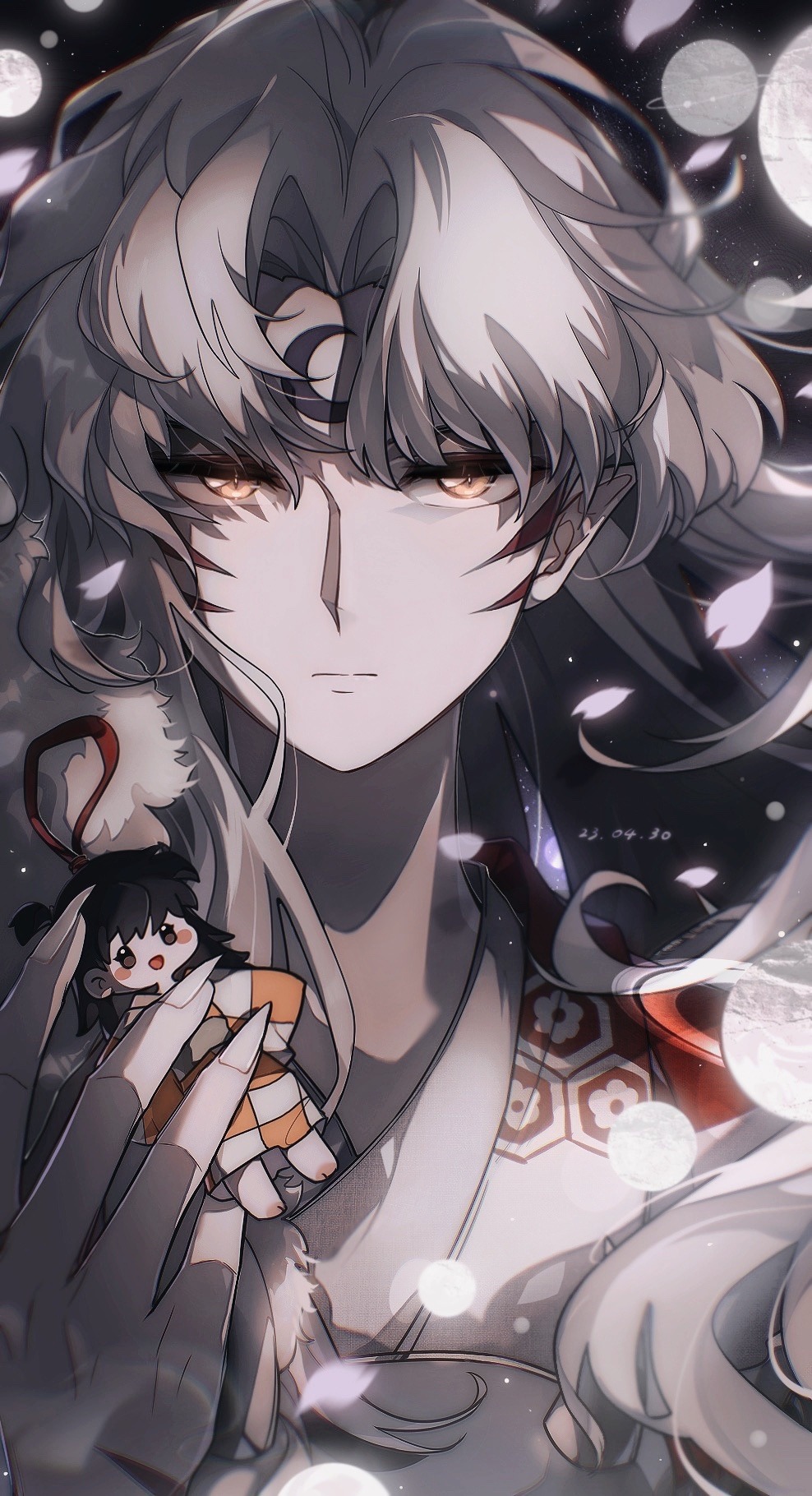
Fantastic SessRin fanart by 苍鹭呱呱呱💞
Repost with permission 🔥
#sessrin#sesshomaru#sessrin is canon#sesshomaru x rin#rin#sessrinners please interact#sessrin positivity#sessrinweek#sessrin family#art#hanyou no yashahime#sessrin forever#sessrin love#sessrin babies#sessrin is cute#sessrin is amazing
128 notes
·
View notes
Note
Hii I want to read the cang lan jue novel.. do you know where can I find the eng translation?? Has anyone posted it on Tumblr???
Hi! Well, maybe someone posted it on Tumblr, but I don't know about it.
Here's a good source where I read it:
Demon King 魔尊/苍兰诀
Name: Demon King魔尊/Parting of Orchid and Cang 苍兰诀
Author: Jiu Lu Fei Xiang 九鹭非香
Genre: Fantasy/Mythological, Romance-Comedy (for some portion of the novel)
© translations belonging to bananachocolatecosmos.wordpress.com
15 notes
·
View notes
Text
In light of popularity of Love Between Fairy and Devil (and me loving the show)
Here is the book translated to english:
Audiobook:
The audiobook is also on youtube, ximalaya etc
103 notes
·
View notes
Text
Fandom get-to-know-me game!
I was tagged by @harocat and @tockamybeloved, thank you! and later by @fateandloveentwined and @moonsorchid! (figured I'd just retroactively tag you on this one :P) (this is himboblackdragon on my main, btw)
3 ships you like
Shen Wei/Zhao Yunlan (镇魂 | Guardian, the ship that singlehandedly pulled me back into fandom after a 15-year hiatus)
Mei Changsu & Feiliu (琅琊榜 | Nirvana in Fire)
Danyin/happiness and fulfillment (苍兰诀 | Love Between Fairy and Devil)
First ship ever
Kimberly/Tommy from Mighty Morphin' Power Rangers.
Last song you heard
Uhh...something by Glass Animals, probably? I was playing their discography yesterday.
...No, wait, probably one of the insert songs in Love Like the Galaxy.
Favorite childhood book(s)
TOO MANY TO LIST -- however, I will pick one at random: Misty of Chincoteague. Horse book.
Currently reading
司命 by 九鹭非香 (Siming by Jiu Lu Fei Xiang), the second book in the Cang Lan Jue series. In Chinese! In English, re-reading the Murderbot Diaries.
Currently watching
星汉灿烂 | Love Like the Galaxy, 且试天下 | Who Rules the World (Zhao Lusi stars in both of them and I confuse plot points sometimes), and the second season of Spy x Family.
Currently consuming
Uh, tapwater.
Currently craving
Some high-calorie food, I'm starving. Job fulfillment.
I'm going to tag @berrysphase and @blenderfullasarcasm, but only if you wanna.
3 notes
·
View notes
Text
Farewell, My Orchid.
*ALL TRANSLATIONS ARE MY OWN, DO NOT REPRODUCE OR COPY!!!
- Original credit goes to author Jiu Lu Fei Xiang (九鹭非香)
- Adapted from《魔尊》(trans. “The Demon King”) ,《苍兰诀》(trans. The Parting of Cang and Orchid)
- Original author notes not included!
Summary:
After an excruciating series of trials and tribulations, the people of the demon realm were able to finally able to revive the primordial demon lord, in hopes that he would lead them in battle against the heavenly realm and unify the three worlds. But they would eventually come to realize that they were wrong. Yes, it’s true he still had that murderous aura and that godly power that knows no bounds— but he… seems to have a few screws loose?
Not to mention his unpredictable tendencies or confused state of mind, but what’s up with him mumbling to himself all day and night?!
Little Orchid: “He’s not sick in the head, he’s just petty… petty and bitchy that other people are doing well.”
Dong Fang Qing Cang: “I just hate to see you happy.”
Little Orchid: “…”
MASTERLIST
Prologue / Chapter 1 / Chapter 2 / Chapter 3
#masterlistCLJ#cang lan jue#love between fairy and devil#dong fang qing cang#chinese novel#chinese translation#第一次玩翻译。。。希望翻译技术不太菜吧#enemies to lovers
10 notes
·
View notes
Text
【海外文轩】杨秋生小说 | 走出Google Map 的魔咒
Original 杨秋生 海外文轩 2023-12-04 08:07 Posted on 美国
她竟然在Google Map 的街景图里看到他。
她是个自雇会计师,那段时间她每天固定要去两个地方,中间有一个小时的空档。两个地方蛮近的,如果办完第一件事回家,大概也只能休息10分钟,又得出门了。她就想,不晓得两个地方附近有没有什么公园,或者有树荫可以遮蔽烈阳的地方?就趁那个空档时间走完每天规定自己的一万步。
于是她利用Google Map 的卫星图一路寻找看看。
她发现那儿附近有一片新兴的住宅区,外围规划了弯弯曲曲的步道,步道边上种了一棵又一棵苍苍郁郁长得相当繁茂的树,正合她的心意。但卫星图是从空中俯瞰往下照的,看不出实地走过住家的模样,于是将卫星图转为街景图。这一转,清晰的马路与房舍立刻映入眼帘,真实地让人身历其境。她的手指不断地顺着像是新开发的社区步道一段一段滑过去,整个社区规划得极好,房子设计也很新颖。滑着滑着,她居然看到一个年轻的妈妈牵着一个小女孩,像是正在过马路。她像发现了新大陆似地,兴致一来,重新回到原始设定地图,找了一个公园,再转换成街景,竟然看到一群年轻人正在公园聚会,如此传真,她似乎都能感受到公园里热闹的气气氛了。
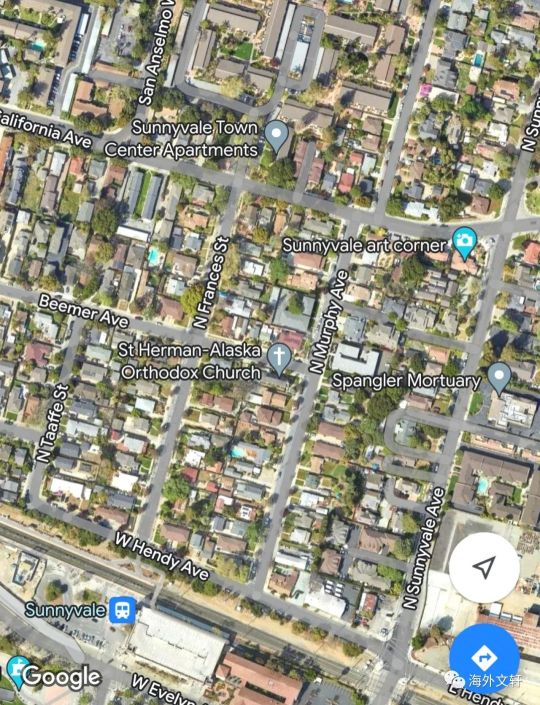
Google Map卫星图
她像着了魔似地,打入自己家的门牌号码,想看看自己家在Google Map里是什么样子?
她看到了她那辆看起来像新的一样的丰田卡罗拉孤伶伶地停在车道,靠马路的白色围牆上攀爬着开得正盛的亚当玫瑰,衬托着翠绿的草坪十分美丽。
她不由想起他。
自从她对隔壁街道一家白围牆上攀爬着美丽的亚当玫瑰赞口不绝后,他便将前院靠马路的草坪产去一大片,搭上矮围牆,每隔几尺种上一棵带着仙气的亚当玫瑰。几年下来,玫瑰越开越盛,那道花牆成为他们那条街最美丽的风景,见证着他们的爱情。
她以为她已将他封尘在记忆的深处里了,而面对着Google Map 里她家的屋子,一切如此真实,彷彿触手可及。她忍不住将手按在她称之为「爱庐」的精致屋子,不停地放大、放大、放大,想看能不能在窗口边捕捉到他的身影。
寻找他的身影的念头像一块石头,丢入她已然平静的心湖,激起一圈又一圈的涟漪。过去的记忆瞬间翻江倒海而来,一股极为难受的情绪堵住胸口,眼泪掉了出来。
她自来是没有什么方向观念的,往往转个弯,就不知道东南西北。而他的脑袋就是一个GPS,根本不需要任何的帮助,一定能够顺利找到目的地。

Google Map街景图
他宠着她,只要她想到那里,他就开车带她去。后来她上班,他陪着她从家里到公司好几趟,确��她记住了来回的路线,才让她自己开车去上班。
她顺势依赖着他,感觉她是世界上最幸福的人。
日子就像他脑袋中的GPS,轨道从来没有出错过,而命运却让她错过了所有的轨道。
那年夏天,热浪来袭,夜里她忽然惊醒,屋外像有什么窸窸窣窣的声音,听起来像风吹着叶子的声音,也有一点像刚下起豆大雨珠的声音。床边他的位子是空的。她想应该已经是深夜了,夜里有时他睡一觉会醒来,便起身到书房打开电脑做点事,累了,再回来睡个回笼觉。她一时也睡不着,下了床,穿过走道,打算也到书房。走到一半,却看到紧邻餐厅的家庭间有着微弱的灯光透出来。
家里的灯都是可调整亮度的,调到那么微弱的光线,感觉上很不寻常。
她悄悄走过去,停在门口,伸个头往里望——她清楚地看见他坐在沙发上的一角发着呆。原来他并没有开灯,而是外头满月的光透过偌大的玻璃窗照了进来。分明是夏天,月光却带着寒气,让他看起来像冰雕出来似的。
她一下子什么事明白了。
他喜欢小孩子,她也是。
虽然他是独生子,即使婆婆没事就要叨上几句,可是他从来不催她,给她最大的自由选择。
她太爱他了,婚后倒是一心准备着迎接属于他们两个的新生命。
可是,一个月又一个月,他们都错过机会。
送子娘娘似乎忘了他们的存在,五年过去了,婆婆的脸越来越难看,说出的话也越来越恶毒,连他都缓和不了,他们只好约着去看不孕症医生。
妳动过卵巢巧克力囊肿的切除手术吧?
当医生这样问她的时候,她的心一震。
那是好久以前的事了。
青春期时候,她每个月到了固定时间都痛不欲生,需要请假,妈妈带她去看医生,检查出两侧卵巢都有大到必须开刀切除的巧克力囊肿。医生信誓旦旦地说,经痛、经期不规则、经血量增加、骨盆疼痛都是不可避免的,有可能日后会导致经血逆流引起骨盆腔炎,甚至蔓延到腹膜引起致命腹膜炎,只有开刀一途。腹腔镜手术伤口很小,复原也快,刀到病除,不影响卵巢功能的运作,仍具有生育能力。那时光听到肿瘤都吓到了,若还会引起腹膜炎,更令人不安,既然还能生育,便顺了医生的建议。
妳的卵巢功能已经衰退得很严重了,妳知道吗?
眼前医生推了推鼻樑上的眼镜,试着用最温柔的语气对她说。
她看到他的脸刷地像诊疗室的牆壁一样白。
那怎么办?他急切地问。
只有人工受孕了。医生说。
她像掉入地狱,有种被欺骗、不得超生的感觉。当年开刀的时候,医生分明告诉她,她仍将拥有生育能力啊。医生说的是事实,可是没告诉她,生育的机率却是非常非常低。
回家的路上,两人都没说话。
他们转往中医诊疗,期待经由中医治疗或许可以自然受孕。
她一喝中药就干呕,呕至眼泪都流出来。每次婆婆来看她干呕都以为她怀孕了,她也想这样欺骗自己。
日子变成只剩下羞辱和痛苦,没有欢愉。
拖了一年,她感觉虚耗的不只是珍贵的适孕黄金期,一直引以为傲如鱼得水的悠然自适,滋养着对方的婚姻,不知不觉紧绷起来。她觉得自己像一只随着水温加高的水煮青蛙。他们自来无所不谈,没事就爱腻在一起;尤其睡前总喜欢说说笑笑打闹嬉戏一番再相拥安心睡去,而现在,两人总是各怀着心事安安静静地躺着。有时她想挨过去贴着他温暖的身子,却觉得一道无形的牆卡在两人中间。她好想和他说说话,却找不回熟悉亲密的感觉,疏离感越来越强,让她觉得他似乎越来越陌生了,话到唇边,就让棉被覆盖着,重重地压在身上沉沉睡去。他的个性原本就温和随和不挑剔,很容易就会忽略他的感受。生活一路下来都是以彼此习惯的方式进行,被医生宣判无期徒刑后,她感觉即是两人摸得到相互的身体,却触及不到彼此的灵魂。有时她不免想,他们完美的婚姻,会不会只是她一厢情愿的幻觉,自始至终她是活在灵魂伴侣美满婚姻的幻觉里?而真正的他,心灵已经走远了?
他们又回去看不孕症医生。
妳的卵巢更老化了,再不做人工受孕,最终只能借卵了。医生凝重地提出警告说。
她的心跌到又深又黑的井里,冰透的水在她的鼻尖沉浮。
借卵?那生出的孩子就不是她和他的骨肉了!不行,绝对不行!
于是,他们开始了更痛苦的身心煎熬的周期。
不同医院求诊,飞行里数足够绕地球一圈,7次取卵,4次移植、流产,超过三百针,身心具是千疮百孔,无止无尽的幻灭⋯⋯
她轻悄悄地走回卧房,斜靠枕上,空洞的眼神,空了的灵魂,如一座暗黑的没有生命的凋像。
他一直到天亮都没有回到床上来。
她听到车库门开启又关掉,她才走出卧室。
他从来都不会这样的,一股蚀心痛楚席捲而来。她走到书房,将书架上所有的孕妇须知、育儿书全都扫进侧院的回收桶。
她颓坐地上,感觉人生走到了尽头。
她需要新鲜空气。
关上门,离开让她窒息的屋子,独自走到沿溪林荫步道。
她家离这个健行步道很近,穿过几条短短的马路就到了。
如果没有特别的事,他们每天清晨都会走一趟。沿路每一栋房子,甚至每一棵树都如此熟悉,她不需要去寻找记忆,闭着眼睛她似乎都能看到她与他手牵着手的影子在前面引领着着她。
很快地进入长长步道中最美的一段,两侧虽然多是杂树,却也长得枝叶繁茂,高大参天,形成绿色天然拱门。健行的人并不多,幽静的林荫小路苍郁凉爽,一扫夏日燠热与烦躁。
一阵风吹来,阳光透过枝叶隙缝洒下来,叶子泛着金光,岁月如此静好。她怔怔地站在那儿,竟有着恍如隔世的感觉。
穿过绿木拱门是另外一番粗放的风景,走着走着就听到了溪水的声音。
干旱了几年,经过冬天与春天两季十多次的大气河侵袭,干涸了的溪水满了上来。走到溪水汇集处,一对绿头野鸭子悠游水中。最早她看到有着亮丽颜色,成双成对形影不离的野生绿头鸭子,还误以为是鸳鸯。后来才知道旧金山湾区只要有溪流,几乎就能看到绿头鸭子。她每次看到水中成双鸭子相守相随不离不弃,心情都特别好,总要看着鸭子远去了才继续前行,他便站在旁边静静地伴着她。
他们两个都是喜欢宅在家的人,结婚几年还老爱腻在一起。即使他在书房里忙着上班时间没有做完的工作,她也不会自个儿看电视。她买了一个比较精致的复古沙发躺椅,听着他忙着敲键盘的熟悉声音,觉得很安心,拿本书在旁边读着。
他们也有过不愉快的时候,意见相左,又称不上吵架或者抬杠的时候,就是沉默相待。两人都不说话,还背对背待在同一个房间里看书。彼此都知道,这样的冷战,说穿了,就是一种惩罚,对自己,也是对对方。熬上几天,他开始露出受苦的表情,她就没有办法拗下去,随便找个什么理由对着空气自言自语,他就极力高声回答,震碎了卡在彼此之间稀薄的玻璃牆。
她要的就是这么一小块,彼此相知相爱的方寸之地。
而今天早上的不告而别,已不是斗嘴或者冷战的级别了,带着决绝的意味。
原来婚姻不能只有爱。
她意识到她一直守护的方寸之地,已经崩裂了。看着她仍然视为鸳鸯的绿头鸭子,酸甜苦辣的心情瞬间翻腾,那撕心之感千回百转,她只觉柔肠寸断,痛楚难当。
再走几步,只见一只白鹭鸶孤独地伫立溪中。
她一直很喜欢体态轻盈纤细优雅的白鹭鸶,一直以为白鹭鸶就像鸳鸯一样,一定是成双成对的。后来才知道白鹭鸶孤眠在草泽之间,卓然特立在潺潺泉石之上,有着怡然独立的特质,而非总是双宿双飞。

形单影只白鹭鸶
特立独行的白鹭鸶总那么优雅孤高不群,像正在思考的哲学家。她每次看到经久站立不动的白鹭鸶,都很想知道牠在想些什么?见白鹭鸶溪边孤影,就会心生怜悯——为什么牠们喜欢离群索居,而不是双宿双飞?永远显得如此孤单,正如现在的她。
她落寞地独行,走着想着,不知不觉已远离林荫,右边出现广袤平原,极力望去目之所及是平缓起伏的层层山脉,充满原始风味;而左边是一大片如竞技场上斗得你死我活,充满不眠不休竞争的高科技谷歌公司。
两边呈现着完全迥异的面貌,她站在分岔点,突然觉得就像她走在婚姻的分界线上,一边是只能拼命,和婆婆、和命运竞赛,近乎绝望的挣扎,无止无休令人喘不过气;一边是自然风光,是她习惯的回归自然的悠然天地。
她该回到婚姻继续与婆婆、命运纠缠?还是自我放逐?
他是个无可挑剔的温和男人,但她知道他骨子里最深处有种不轻易妥协的别扭,除了对她。十年婚姻最初的甜蜜与相依在后来求子屡战屡败的挫败磨下来,所有的温柔与温情消耗殆尽,她曾从他的眼睛看到愤怒、哀伤、挣扎与绝望。站在分岔口,她意识到他们最终走到了婚姻的分界点。
未来他会选择哪一条路?
事情是怎么发生的,到现在她都没有办法理清楚。
只记得从步道回去后就决定放他一条生路。
是谁说的?以不爱为爱。
当她跟他谈起离婚的事情的时候,她感觉到他全身颤慄不已——其实她自己也是。她的内心充满了恐惧——对即将失去他的恐惧、对未来的日子里头没有他的恐惧。她的泪水已经急涌上来,可是她没有让一滴眼泪掉下来。是的,她会失去他,将来的日子里,再也不会有他⋯⋯
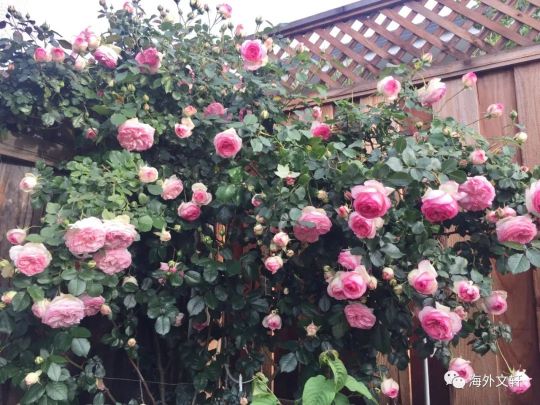
亚当玫瑰
他离开后,她生了一场大病,姊姊来看护她,直骂她傻。
傻呀,她自己也知道。
她对他有深深的眷恋,她相信,即使他离开,对她仍然深深地眷恋着。
她在这个屋子里已经住了五年,他搬离开后,她原本是想卖掉这栋房子的,生怕触景生情,但是她最后还是选择留下房子,不只是因为屋子里一物一角都载满了她与他的回忆,她舍不得把这些甜蜜的感觉,从她的生命中剔除开来,最终淡忘成为模煳的记忆。在她的心底,她没有真正的放掉他,或许,还期盼着他会回来看看她?
他离开后,她才发现屋子显得特别宽广而空旷。一到夜晚,整个屋子寂静无声。偶尔一阵风吹过来,她似乎都可以听到松针落地的声音。她有时候会想,如果他死了,她还可以带着他栽种过的玫瑰花去墓园看他。而他只是离开,她却可能永远再见不到他。但她又不希望他死掉,至少知道他在一个不知道的地方好好地活着。
冬天夜晚来得早,窗外的景色一暗,她就心慌。她把家里所有的窗帘关得密密严严的,再把全家的灯都打开,到处亮亮的。
她只能呆呆地坐着,哪儿都没有地方去。
那时她没换床,还深深地眷恋着他留在床上的气味,躺在加州特大号床,那熟悉的气味帮她度过了无尽的孤独黑夜。
而后来,她每次看着那空着的半张床,就像看见一个黑洞,她似乎就要掉进黑洞里头去了。
她终于将那张床也丢了,买了一张单人床,空间一下子大了许多。她买了一张大椅子,衣服脱下来也不拿去洗,就堆在椅子上,带点乱糟糟的味道,看起来像是有两个人住着似的。
她对各式各样的气味非常敏感,衣服被太阳晒过的味道,是一种居家安心的感觉;电锅里的饭快要煮好的时候,总让黄粱一梦变得真实起来。他的枕头套才不过几天就会飘出淡淡的油味来,她一边叨,一边也觉得有着熟悉的气味,生活充满了流动的气息。
气息随着他远离的时日久了也渐渐淡下来,连捕捉记忆都开始觉得困难。她思念他到再也没有办法遏止的狂乱的地步的时候,她就拿出纸笔来写信,一封又一封没有办法投递的信。
最初她有时会想,哪天下班回家时,他会不会出现在他们曾经拥有最美丽的回忆之处?屋子里的这个女人,曾是他最深深的爱恋?
偶尔走过他们常去的咖啡馆,有几次她以为看到了他。事后总忍不住嘲笑自己,世界上至少有一半的年轻人会像他那样穿着牛仔裤,上面着上一件看似随意却相当讲究的T 恤。
时间久了,她其实也知道,他是不会来的,也不可能不期而遇的,但是她就是不肯放掉这个念头。他曾经如此爱着她,他怎么可能就舍她而去呢?她还相信着他坚贞的爱情,就如同太阳每天早上一定会从东方升起,会照亮她的窗台。
她有一回,相信她是哭着睡着的。她做了一个梦,梦见她在海边,忽然见到他从远方奔过来,一路哭喊着:贝贝被海浪卷走了,贝贝被海浪卷走了!
贝贝是他们刚开始尝试着要孩子的时候,为孩子先取的名字。
她惊醒过来,吓出一声冷汗,心脏砰砰跳个不停。她不知道为什么会做这样的梦?有好长一段时间这个梦一直如影随形地跟着她,从来没有离去过。她只觉得痛,痛到没有办法再痛了,反倒在深渊里一点一点慢慢苏醒活过来。
她终于相信他是不会出现在她的世界里了,那已经是很久很久以后了。
她突然悲哀起来,世界上像她这样在空等中打发一辈子的女人有多少?她是不是就这样终其一生地等待永远不会再回来的爱情,日复一日、年复一年,直到头发斑白,眼睛再也看不清前面的路⋯⋯
往事一幕一幕清晰如昨,她整个陷在google map 里——听说他其实住得并不远,就在隔壁城市,她发了疯似地,开始一条一条马路寻找。地图、卫星图,街景图来回切换,彻夜未眠,无止无休地滑着地图。
终于那辆她熟悉得不能再熟悉的宝蓝色第八代的雪弗兰跑车,就出现在离她家只有三里路的一个小小社区里的一栋康斗的车道前——那绝不会有第二辆。
她将街景放大,是了,是他的车子,虽然车牌经过处理一片模煳,但她一眼就认出车尾右边保险杠他贴上的Keep Tahoe Blue贴纸。原来他真住得这么近!她的眼泪掉了下来——咫尺却天涯!
看来驾驶座车门是开的,她猜想应该是他刚坐上驾驶座上,将公事包放在乘客座,左脚还在车外尚未收回车内的那一瞬间,被谷歌拍摄街景的车瞬间拍下。她赶紧将地图放大,偏偏谷歌是从车子的背后微右的角度拍摄的,虽看得到车门是打开的,却无法看到她想像中还露在车外的左脚,而后车窗深深的树影与绚丽阳光经过光学透镜的折射,半幽深半模煳,将他与她完全隔了开来!
她决定亲眼去看看。
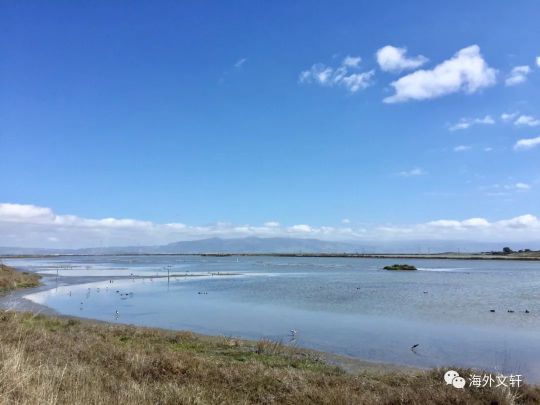
海的尽头
她将街景图转回地图,起身,拿了纸笔,准备画出一张自己看得懂的地图,决定天一亮,她就要去寻找那栋精致的小屋。
她对于看地图一直有着极端的困难,她自小没有东南西北的概念,只有前行、右转、左转与往回走的观念,不认路,却记得每段路的建筑和地标。去哪儿,她都会画一张从家里出门一路只往前行、右转与左转属于她自己的地图。他老是笑她画的地图和日本人一样,连警察画出的案发现场地图都只有主要建筑,没有东南西北、没有街名。一瞬间,她的眼角热了,视线也模煳起来——他们的生活中曾经有过这么多的甜美记忆。曾经一起经历、拥有过的时光一旦变成记忆,她就往往卡在真实与虚幻之中,不知身在何处?不知何去何从?
她一边对着手机的地图,方向转来转去地画着,一边想着,我会看到他从门口出来,坐上爱车,微开的车窗仍然流溢出来着断人衷肠的二胡乐曲吗?
他头发长了还没去理发店修剪吗?
想着想着,她的心脏怦怦跳得厉害。
三里路,像开了一辈子。
她将车停在路口的转角处,隐身在路边的大树干后面,时不时瞥一眼。
终于,车库门打开了,他提着惯用的公事包从里头走了出来。
她的手湿了,没办法去抹额头滴下来的汗。经过眼角,流到唇边,咸咸的。
远远地看他,身形没什么变,但带着些微疲倦的面容上有着愉悦的光彩,很奇怪的组合。她想着,从来没有看过这样的他。才不过几年,就变出一个她从来没有见过的样子!
哔哔两声,车灯闪了几下,他打开驾驶座,坐上车,将公事包放到乘客的座位上,所有的动作还是和以前一个样子。
她的心剧烈地跳动起来,真想从大树后头奔过去,从后头用双手紧紧地环抱着他——她从来没有像现在这个时候这样后悔让他离开!
咫尺天涯,曾经如此亲密,竟成陌路。
一个绑着马尾巴脸上浮着笑意的年轻女人从灯已灭了的微暗的车库走出来。与其说她是女人,不如说她更像个女孩子。纤细的身材,长手长脚,像她年轻的时候。连绑着的还在晃动的马尾巴、宽松的纯棉浅蓝色格子衬衫、帅气的牛仔裤都一样,有几秒钟,她以为是她和他到了另外一个平行宇宙。
他对着马尾女孩(应该是他新娶的太太吧?)露出她已久违的怜爱表情。他说了些什么,只见马尾女孩低下头,双手摸着扁平的小腹,浅浅地笑着,眼角漾满幸福。
她的心像是受到很大的撞击,几乎要跌坐在地上。
心,一点一点往最深处痛起来。她撇过脸,地上有了豆大的水滴。
她慌乱地奔离,差一点就被路边凸出来的一块树根绊倒,大拇趾痛彻心扉。
她头上发热,身子却觉得很冷,那冷,就像有一次他们到密西根,去看人家冰钓,她好奇央求人家让她摸一下冰块缺口的水有多冰?那冰,冰到心脏都要停止跳动了,瞬间一股像被火烧似地感觉直窜手掌。冰与火在那一刻没有了界线。
她想起他们陷入深深恋情的时候,她与他最喜欢的一首汉乐府《上邪》,两人高兴起来眼里只有对方,轻轻地吟着:
上邪!我欲与君相知,长命无绝衰。
山无陵,江水为竭,冬雷震震,夏雨雪,天地合,乃敢与君绝。
文字错落相间,读起来特别有味道,注入了忠贞不二、澎湃热血,像是用生命铸就的爱情。20年,她从青春豆蔻走到充满疑惑的不惑,心头守着的不就是这一纯美情爱吗?
他,人早已走远,她还在反反覆覆地追思着过去。
她到现在都跨不过去这个坎,她不知道他是怎么跨过去的?
她的心好痛,整个人像被劈成两半,灵魂都没有了安置处。意识到了原来她是用整个生命去爱他;而曾经这么爱她的他,自己却只是他生命的一部分。
踽踽独行,阳光将她的影子拉得老长,孤独地像个寂寞的灵魂。她呆呆地站在那儿,意识到属于她最刻骨铭心、最重要最精华的人生已成了过去——他在她的生命中将永远缺席了。
她反复思索,当时二话不说还他自由,到底是不是她真正的心意、真正的爱?她对他这样深刻的爱,他知道吗?她总是一次又一次地回想那天夜里他一个人呆坐在窗边的景象,现在想起来也许事情并不是突然发生的,恐怕是一点一点已经埋伏在他们各自的心底了。
她连他的车从她旁边驶过去,她都没有发现。
她曾读过一段话:平静地接受消失与死亡是一种沉静的修行。
很多事情,只能靠幻想安慰自己吧,贪图变成真实,绝对会变成一种灾难。
回到车上,她打开引擎,车子缓缓前行,最后停在步道入口的路边。
她下了车,进入阳光尚未渗入树林的那段步道。
树荫有点深,她快步走着。旁边稠密的杂树林里是没有晨曦与黄昏的,只有白天与黑夜。在阳光不足的浓密树林里,一切都不透明,显得有些阴森而鬼魅,让她一时分不清过去、现在与未来。她的思绪与记忆虚实交错,彼此折叠着。
她越走越快,想快速穿过这段向来最爱的林荫小道。
终于听到水声,她的心稍稍平静下来。经过大气河与炸弹气旋的夹击,泛滥溢出去的溪水特别澄澈,绿树倒影清晰可鉴,像是反过来生长似的。白云在水里缓缓地移动着——折射着相同的景象。
溪水如镜,她停伫下来,发���溪水之上与溪水水下如此相像,虚实难分。
曾经生活过、拥有过的,到底算实,还是算虚呢?
她忽然觉得那段相倚相靠的日子远去了,远到像是上辈子的事情了。
她继续向前行,走到更宽的湍急处,好几棵被风吹倒的树七横八斜地卧在水中,溪底落叶枝枒交缠。
原来大自然有自己的消长,她忽然了悟了。
小径没有终点,走着走着,穿过从前走过的分岔点,继续前行,两边再也没有房舍。
她看到了海,左前方。
她沿着小径向左弯过去,沿着海边步道走,出现了湿地。

海陆交界湿地
她忽然发现,以前一直以为的“海的尽头”是在岸边眺望大海极目最终之处,而现在站在海与陆地的交会之处,才意识到大海与陆地的交界湿地,才是大海的尽头。一大片一大片的沼泽地与小池塘、水道上都可看到各种水鸭子、加拿大雁、鹭鸶、鹈鸪或悠游或栖息其间。振翅高飞的鸟在海阔天空中自由飞翔。水中映着白云,点点水鸟、鹭鸶觅食——原来生命可以如此丰富而缤纷。
海的尽头,原来近在眼前,正是生命的源头!
她一直以为她的悲哀,就像海看不到尽头一样,现在她忽然明白了,她的心底涌上一股热直冲眼角,鼻头酸了起来。
向死而生,就是重生,她忽然懂了⋯⋯
(文中插图由作者提供)
~完~
3 notes
·
View notes
Photo

アオサギ定位置。線路工事は全然気にならないようです。
#アオサギ#Ardea cinerea#birds#ptaki#野鳥#野鳥観察#grey heron#czapla siwa#蒼鷺#苍鹭#バードウォッチング#bird watching#japan#川#rzeka#river
0 notes
Text
Love Between Fairy and Devil Season 1 (Complete) (Chinese Drama)
Love Between Fairy and Devil Season 1 (Complete) (Chinese Drama)
Download Free Movie Titled: Love Between Fairy and Devil Season 1 Episode 1 – 39 (Complete) (Chinese Drama) Mp4,Mkv,Avi
When a low-ranking fairy accidentally resurrects a powerful demon, their fates become cosmically entangled as the world is thrown into turmoil.
Adapted from the novel “Cang Lan Jue” (苍兰诀) by Jiu Lu Fei Xiang (九鹭非香).
Also Known As: Mo Zun , Chong Laan Kyut , Mo Jeun , 魔尊 , 蒼蘭訣 ,…
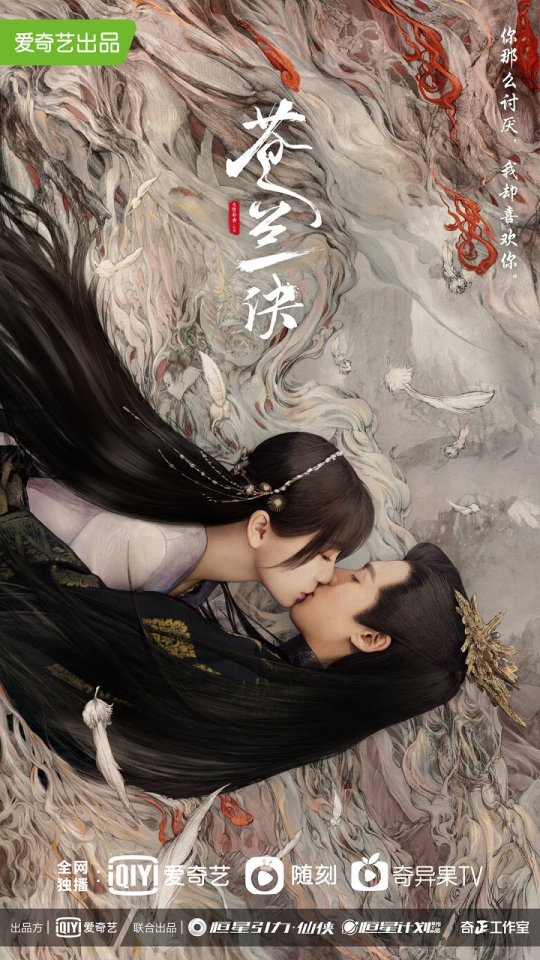
View On WordPress
2 notes
·
View notes
Text
L'airone che spesso si trova a Sestri Levante
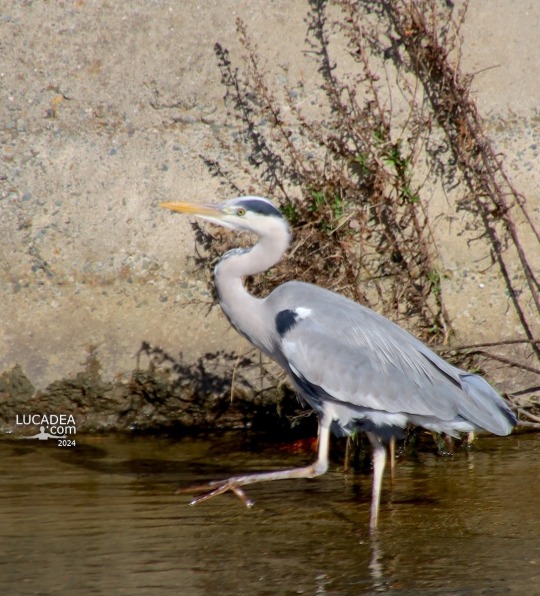
L'airone che spesso si trova a Sestri Levante.
Da qualche anno vedo spesso, in giro per Sestri (o nei pressi del Gromolo o nel Petronio) un airone.
A dire la verità non saprei nemmeno dire se è sempre lo stesso.
Questa volta avevo il tele e sono riuscito a fotografarlo abbastanza bene mentre si crogiolava al sole nei pressi del ponte sul Gromolo che va a Santo Stefano, nei pressi di villa Sertorio.
Tu lo hai mai visto? The heron that is often found in Sestri Levante - Le héron que l'on trouve souvent à Sestri Levante - La garza que se encuentra a menudo en Sestri Levante - A garça que costuma ser encontrada em Sestri Levante - Der Reiher, der häufig in Sestri Levante anzutreffen ist - Con diệc thường thấy ở Sestri Levante - 塞斯特里莱万特常见的苍鹭 - セストリ・レバンテでよく見られるサギ
Read the full article
1 note
·
View note
Text
我想 你应该永远不会知道
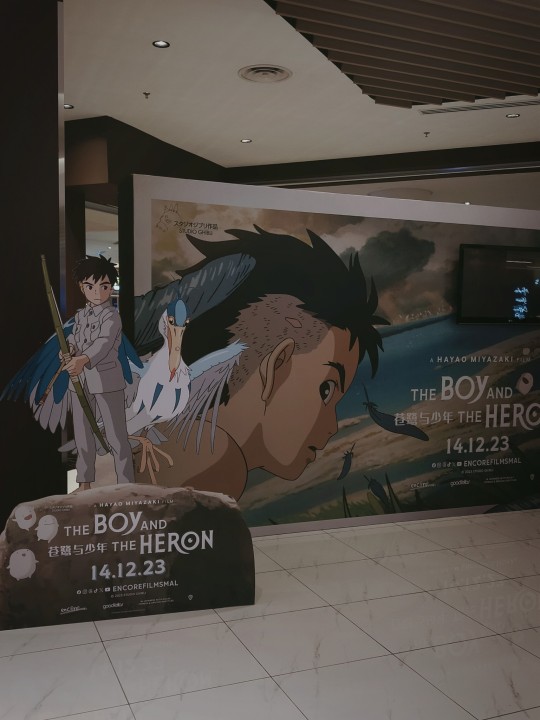
嘿 你知道吗
其实你在另一方拍下这电影宣传照时
我约5分钟前 在这一处拍下这张图
或许你永远都不会知道
我们俩相似却遥远
你原来在我正对面
一直以来都没有发现到呢
然而 你也错过了那一刻
也许就是命运的安排 残酷的现实
你说你总以不同面目示人
我所了解的仅是你想让我见到的
但你可能不知道
我跟你这方面还挺像的
你觉得我的一切 亦非完全是真实的我
我想 为自己辩解的这种东西
只有对自己在意的人身上才会发生吧
所以 不解释的原因
从来不是放弃或绝望的象征
而是我认为 被误解乃兵家常事
懂的人都会懂 不懂的解释多少也无济于事
毕竟 咱俩之间也没什么可值得的了 不是吗
对于你很多个不应该的举动
你或许无法站在我的视角看待一切
你很主观 很理性 也很现实
我却很矛盾 很感性 偶尔理想主义
这也许是站在正前方的我们却看不见彼此的原因
我说过你温柔 善良 细节
但你的温柔是伪装 善良是面具
细节是精打细算
如此一来 我倒是真不够了解你了
也罢 志不同 道不合
我想 你还是挺幸运的
因为拥有坚定的目标和方向
是如此奢侈和难得
你眼里认为伸手可得的一切
不过是生来有人为你铺开的保护伞
任你肆意妄为 大胆放肆
我渴望自由 憧憬一些无法言语形容的梦想
那是因为我确切的明白现实给我的枷锁
你是幸福的 暂时没有任何能真正束缚你
当我尝试让你从我的眼里看向世界
你却毅然决然否定我的一切
你的人生观 价值观 世界观是死的
无法变通的你 虽然可能耳听八方懂得通透
但你秉持且坚信自己认为正确的那一套逻辑
仅凭这些 难道真以为足够了解我吗
在你一遍遍尝试剖析我的想法的时候
你从未走心 从未认真看过我
因为我知道 那颗心已不再这里
所以我只是实验室里某一只待剖的青蛙
人若有爱 绝非理性
可你一直以来都很理性
无法撼动的那颗心 也许是我这段旅程失败之处
原来爱与不爱一目了然
只是清醒的沦陷 自知但不自制
如果苍鹭已飞去遥远的他方
停留在原地的少年会很尴尬的吧
世��说 浪子回头金不换
可我知道 浪子从不会为了谁而改变
我予每份感情的喜怒哀乐
恰恰是因为我对自己足够真诚
我对你的感觉 不是爱 但也并非不喜欢
也许只是疗愈过程的一昧良药
只是氛围衬托下来的情感
我想你应该不知道很多关于我的事情
你也应该不知道 我其实最懂你这种人
也许你不相信 会否认
但 我也许某一刻认真懂你的某一部分
那是你脆弱的一部分 你不敢将其示人的一面
所以你很坚决地否认 很坚定地离开
其实 你也该反省 为什么被封上“渣”的名义
因为所作所为皆可追寻踪迹
你可以忘记当时在JC3外面说的那句话
你可以否认曾经说出令人纸醉金迷的甜言蜜语
因为对你我而言 都是过往云烟
我曾经确实走过心
那晚 你问我为什么喜欢你
我后来逐渐明白 为什么喜欢可以无理由
你对我的喜欢是有前提代价
而我对你的喜欢三言两语说不清
你说你呈现给我的部分只是为了迎合我
所以你大抵不会知道 我也喜欢过你真性情的一面
很多话想说 很多东西想表达
可话到嘴边总会留三分
我从来不把话说得太满
你也不必夸大其辞
水杯若是空荡荡 也可以不用刻意倒满
希望全世界的女生擦亮双眼
莫要在为模棱两可和含糊的一切内耗
钻牛角尖 或是自欺欺人
这样得不偿失 还会莫名增加普信男的自信
我对你说 这是一个悲惨的故事
可我其实想表达的是
这是关于我们变成我和你的故事
你曾如此靠近 我们曾同在一个世界
后来你需要离开 而我需要向前看
我记得你从不回头
而那时我回头 不见你犹豫半分
那晚我情绪不好 鞋子开口 狼狈至极
你却一句关心也不曾施舍
我笑你还质问我为何弃之 还让我拖着走
当时我眼中的暗淡 你眼中的那份豆腐花
我更嘲笑自己的眼光 总是容易遇人不详
很多事情 你在最不该温柔的时候体贴入怀
最应该同理的时候冷漠无情
笑死 我还一遍遍地为你辩解
想来 傻的单纯的是我呗
是时候要说再见了呢
有梦就去追 有坚定的方向与目标 挺好的
苍鹭与少年这部电影其实很适合你
可惜在我旁边的你心不在焉
其实我还得谢谢你对我的好
我真的由衷感恩
但这份善良最好别在雨露均沾了
有些好是需要留给真正爱上的人
莫要让他人产生不必要的误会
抑或是生了不必要的情感
你说你内心是至善的
那 望少年不忘初心
祝你幸福 快乐
{20231216; 11:43}
0 notes
Text
突然意识到c翼也是鸟比喻,而且是sw里面的战斗机名字

一个飞行员+一个炮手,嗯
现在基本能确定道德支线白鹭是火炮系统就是刻意跟苍鹭联系起来的
可以想象,harry开战斗机带着炮手jean去打静风舰了,kim眼睛不行,应该是当地面机师(硬核模式通关以后换上机师款黑夹克)
另外早期战斗机似乎就是要带一个观察员/炮手
0 notes
Text
宫崎骏新作再度回归反战主题,日网友称“看不懂,但大受震撼”
全球动画迷“苦等”10年之后,日本动画大师宫崎骏的最新作品《你想活出怎样的人生》14日终于在日本上映。这部传闻多年的宫崎骏“封镜”之作,再度回归反战主题和成长视角,上映前的“��宣传”操作让该片充满神秘感,而看完全片的观众则陷入了对剧情是否过于晦涩——“我看不懂,但我大受震撼”的争论之中。
神奇的“地下世界”
《你想活出怎样的人生》上映前,外界对于宫崎骏这部新作的了解,仅限于片名取自日本作家吉野源三郎1937年同名小说,以及一张绘有苍鹭的海报。与传统营销手段大相径庭,吉卜力工作室此次在《你想活出怎样的人生》发行上刻意打造神秘感,拉高观众好奇心。影片上映后观众才发现,原来宫崎骏仅仅借用原作名和少年视角,其他剧情、人物和时间线几乎全部是原创的。
《你想活出怎样的人生》长达124分钟,故事背景从二战初期改到1944年战争即将结束时。主故事线中,因战争失去母亲的少年牧真人同父亲搬到乡下生活,他无法融入乡村学校,也难以忘记母亲。面对残酷现实时,半梦半醒的少年总能见到一只奇怪的苍鹭,仿佛代替自己观察这个超出理解的现实世界。在一次寻找继母的途中,男主被苍鹭带入神奇的“地下世界”,那里有各种奇怪的小人和生物,以及酷似自己母亲的女孩,后来男主发现:创造这个地下世界的人正是自己的叔爷。
相比宫崎骏之前充满童趣和警世意味的作品,《你想活出怎样的人生》显得更加晦涩,剧情和场景变化也颇为意识流,不少观众第一遍没能看懂,只是依稀感觉地下世界和苍鹭的设定有点像《千与千寻》。美国《综艺》称,《你想活出怎样的人生》目前已确定售出北美版权,预计将于今年晚些时候在美国上映,其英语片名为《少年与苍鹭》。
《你想活出怎样的人生》的北美发行方Gkids将延续吉卜力的发行策略,正式上映前不会发布任何宣传物料。在Gkids总裁大卫·杰斯特德看来,宫崎骏是电影界的传奇人物,他曾凭借《千与千寻》斩获奥斯卡最佳动画奖,《卡尔的移动城堡》和《起风了》两度提名,全世界都在期待他十年才推出的这部新片。
“一遍无法消化,还得二刷”
《好莱坞报道者》称,《你想活出怎样的人生》的“零宣传”发行方式更多是吉卜力工作室现任社长铃木敏夫的坚持,他认为过度宣��反而会削减观众的兴趣:“身处信息如此丰富的时代,‘缺乏信息’也是一种乐趣。”宫崎骏上映前也对铃木的决定感到有些焦虑,毕竟这很可能真是他的“封山之作”。不过影片在日本上映后的票房打消了宫崎骏的顾虑。
据日本东宝公司公开票房数据统计,截至18日,《你想活出怎样的人生》累计票房达23.78亿日元,上映4天时的观影人数超135万人次,超越《千与千寻》的同期票房纪录,首周末三天票房创下吉卜力工作室有史以来最成功的开画成绩,超过2004年的《卡尔的城堡》(14.8亿日元),还创造了日本IMAX银幕的新票房纪录。《好莱坞报道者》认为,鉴于日本电影市场向来“慢热”,长线票房比火爆的首映更重要,宫崎骏新作的票房走势还有待观察。
此外,两极分化的口碑可能对《你想活出怎样的人生》的本土和海外票房造成影响。日本评分网站“映画网”上,该片的观众评分只有3.4(满分5星),不少网友直言“看不懂但大为震撼”。日本《每日新闻》在新宿的影院门口采访时,有一名27岁的观众表示“这是宫崎骏幻想世界的‘巅峰之作’。看一遍都无法消化,还得二刷。”
美国“科技博客”网站认为,“这部影片是由母亲的去世而引发的回忆,无论是每个场景的细节,还是宏大的主题,都是丰富的幻想合集。82岁的宫崎骏在最后一部作品中展开对人性复杂程度的思考,在奇思妙想的家庭和幻想元素中减轻了主题的沉重感,令人感叹动画所能呈现的无穷魅力,观众仿佛与男孩完成了一场隔空对话。”
谁是真正的接班人
对于熟悉宫崎骏本人和他作品主题的粉丝来说,《你想活出怎样的人生》带有明显的自传体痕迹,而且这不是宫崎骏第一次在宣布退休后发布新作,甚至还有“回归后的作品会成为神作”的规律。早在1997的《幽灵公主》上映之后,宫崎骏就曾考虑退休。2013年,宫崎骏推出《起风了》后宣布引退。
以宫崎骏“十年磨一剑”的创作频率,《你想活出怎样的人生》大概率真的是他的最后一部作品,这也是众多影迷第一时间去影院观影的原因所在,毕竟当年和宫崎骏一同创办吉卜力的高畑勋已离世,今年82岁的宫崎骏作品“看一部少一部”。至于宫崎骏退休之后谁来接班,哪位年轻导演有资格成为日本动画的“代言人”,影迷和媒体这十几年来曾列出不少人选。
目前看来,宫崎骏的长子宫崎吾朗还要再历练历练,他的最新作品《阿雅与魔女》反响不佳,似乎还未继承其父的精髓。日本动画界目前还有曾参与《天空之城》、打造《新世纪福音战士》系列的庵野秀明,凭借虚拟世界科幻主题《夏日大作战》和《龙和雀斑公主》获得好评的细田守,拥有《你的名字。》《铃芽之旅》等多部成功作品、在国际上愈加知名的新海诚以及打造另类风格《犬王》等的汤浅政明等。虽然日本动画产业成熟的体系和庞大的从业储备,仍能保证足够人才继承宫崎骏的衣钵,但究竟谁是真正的“旗舰人物”,至今还没有定论。「海外網」

0 notes